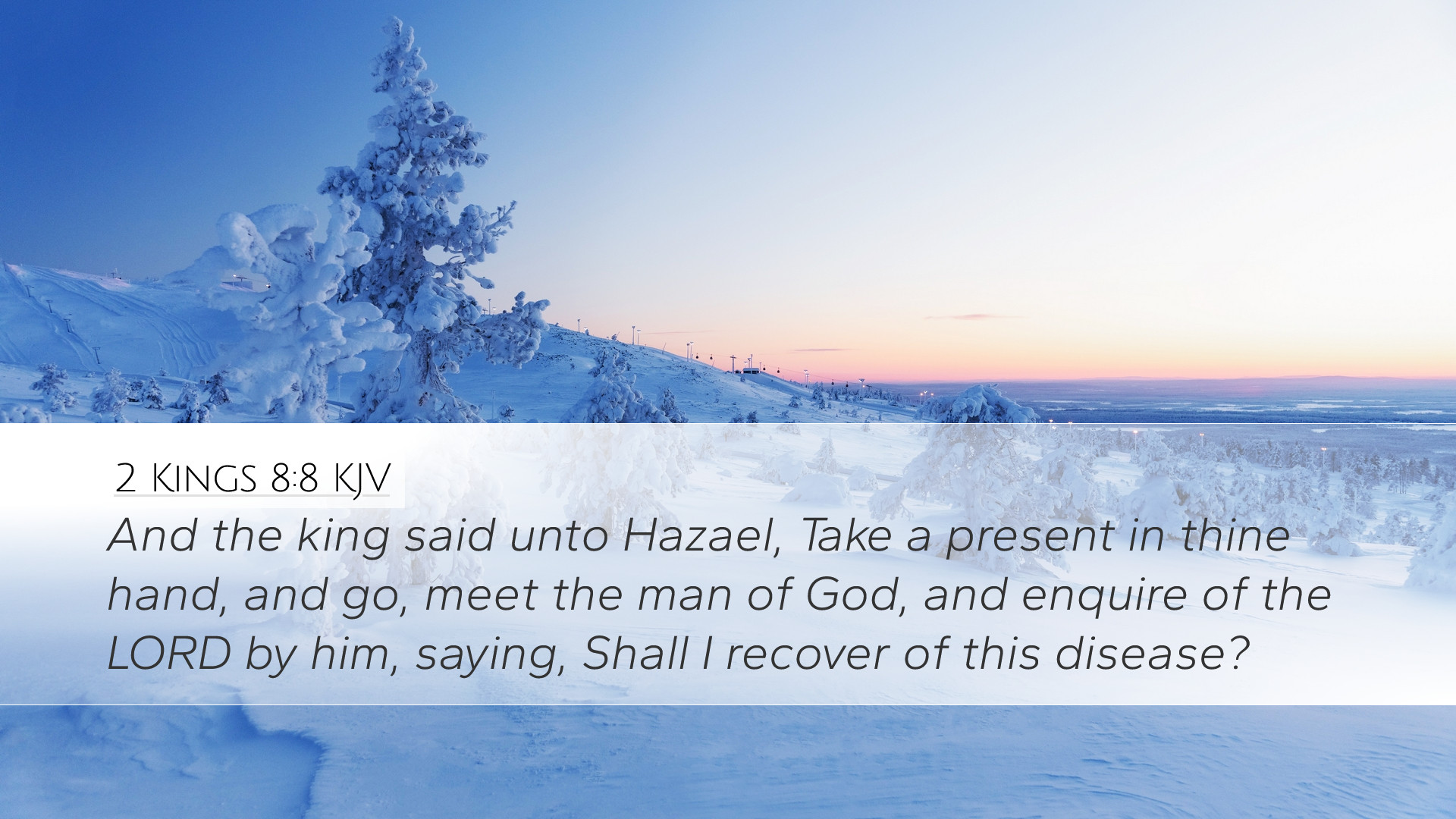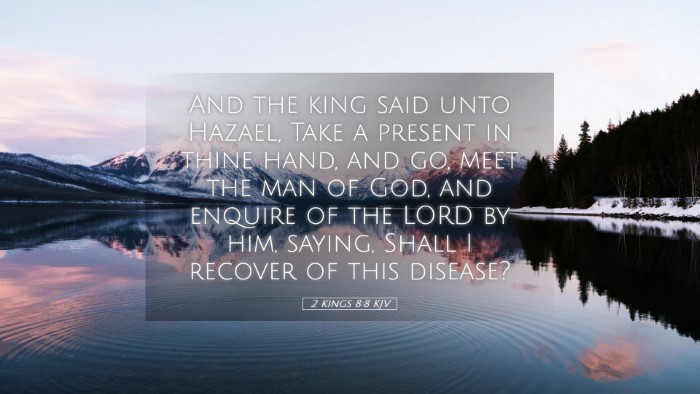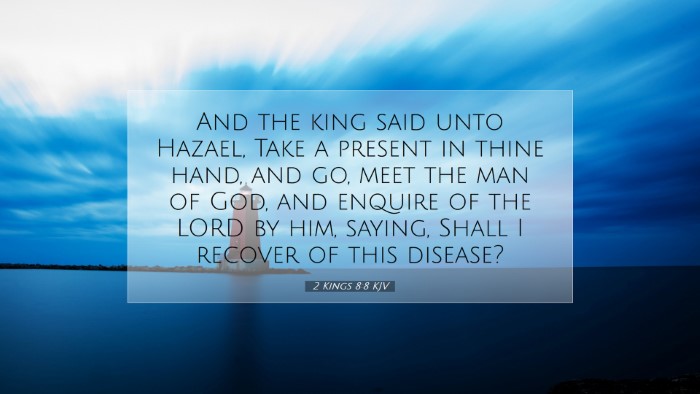Commentary on 2 Kings 8:8
In 2 Kings 8:8, we encounter a significant moment within the broader narrative of the Old Testament, particularly relating to the history of Israel and Judah. This verse illustrates the intricate interactions between the kingdoms and the divine providence manifest in their affairs. Here, we will draw insights from public domain commentaries to unpack the theological, historical, and practical implications encapsulated within this verse.
Text of 2 Kings 8:8
“And the king said unto Hazael, Take a present in thy hand, and go, meet the man of God, and inquire of the LORD by him, saying, Shall I recover of this disease?”
Contextual Background
This passage is set against the backdrop of a period of political intrigue within the kingdoms of Judah and Israel. It occurs during the reign of King Joram of Israel, who is suffering from a serious affliction. The prophet Elisha, a prominent figure in the prophetic tradition and a successor to Elijah, plays a crucial role in this narrative.
Matthew Henry highlights that the passage reveals both the desperation of King Joram, who seeks divine insight regarding his health, and the using of worldly means (gifts) to approach a prophet. This reflects a belief in the prophetic authority but also indicates a misunderstanding of true worship and reliance on Yahweh.
The Character of Hazael
Albert Barnes emphasizes Hazael’s character, noting that he was a man of significant ambition and capability. His introduction in this verse serves as a foreshadowing of the events that will unfold regarding his rise to power. Hazael is sent on a task that intertwines his destiny with that of Israel's spiritual leaders.
Hazael's interaction with the prophet Elisha will have profound implications, not just for his personal fate but for the entire nation of Israel. The decision to approach a prophet for healing indicates that even the kings of Israel recognized Elisha’s prophetic gift, despite their own often-wayward worship practices.
The Significance of the Present
Joram instructs Hazael to present a gift to the man of God, which raises questions regarding the nature of prophetic ministry. Adam Clarke notes that the act of presenting a gift was customary in approaching a prophet in ancient Near Eastern culture, but it also suggests an underlying transactional approach to seeking divine favor.
This action reinforces a critical theological point - that while God desires devotion and repentance, the act of bringing gifts should not be seen as a means to manipulate divine will. True healing and recovery come not from gifts but from sincere faith and dependence on God.
The Inquiry of the Lord
The essence of Hazael’s mission is articulated in his inquiry to the prophet: “Shall I recover of this disease?” This question reflects both faith in the prophet’s authority and a deep concern for his health. Matthew Henry remarks that this query not only reveals Joram's fragility in health but also reflects on his spiritual state.
Henry elaborates that this passage serves as a reminder that kings, despite their position, are ultimately dependent on God. This inquiry also demonstrates a moment of humility, where even a ruler must confront the limits of human strength and the inevitability of death.
Lessons for Today’s Leaders and Believers
From 2 Kings 8:8, a few pertinent lessons can be drawn:
- The Importance of Seeking God: Leaders and believers alike should consistently seek divine guidance in times of distress. Joram's inquiry exemplifies the necessity of turning to God rather than relying solely on human understanding.
- Understanding Prophetic Authority: The willingness to seek the counsel of a prophet emphasizes the importance of spiritual accountability and insight in decision-making processes.
- True Reliance on God: Gifts and offerings can serve a purpose, but our reliance should be on God's grace and mercy. Actual healing transcends material contributions and must be rooted in spiritual authenticity.
- The Humility of Leadership: Even those in positions of power are not exempt from vulnerability and the need for divine help, reminding leaders to maintain humility and a posture of prayer.
Conclusion
In summarizing the insights from public domain commentaries on 2 Kings 8:8, we recognize a rich tapestry interwoven with themes of leadership, prophetic ministry, and divine providence. As pastors, students, theologians, and Bible scholars reflect on this verse, it provokes a deeper understanding of God's sovereignty amidst human challenges. The discernment of Hazael’s character, Joram’s inquiry, and the significance of prophetic authority all contribute significantly to the overarching message of God’s continued involvement in the affairs of humanity.


